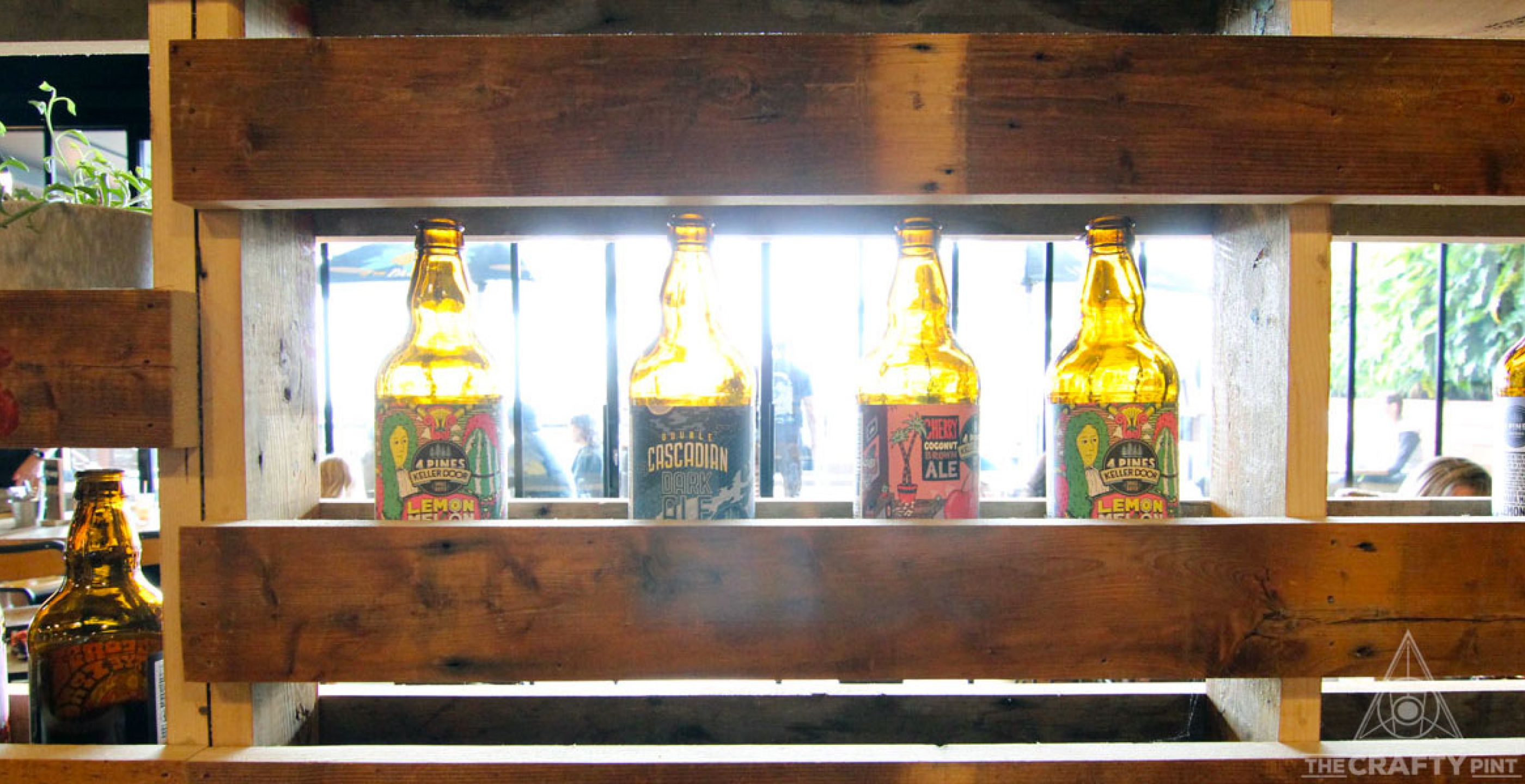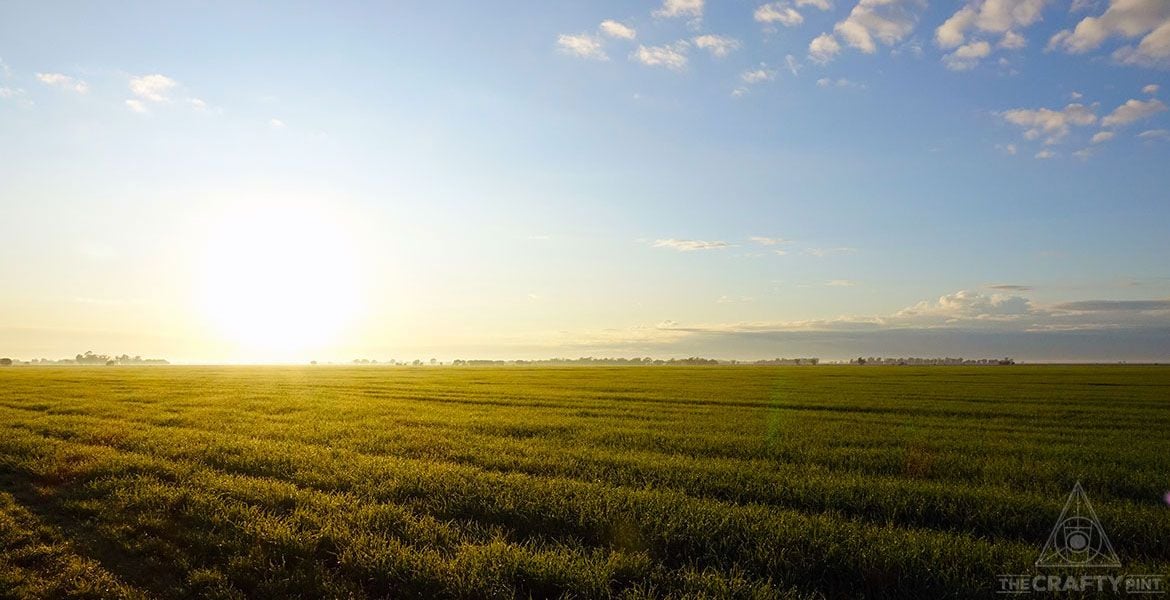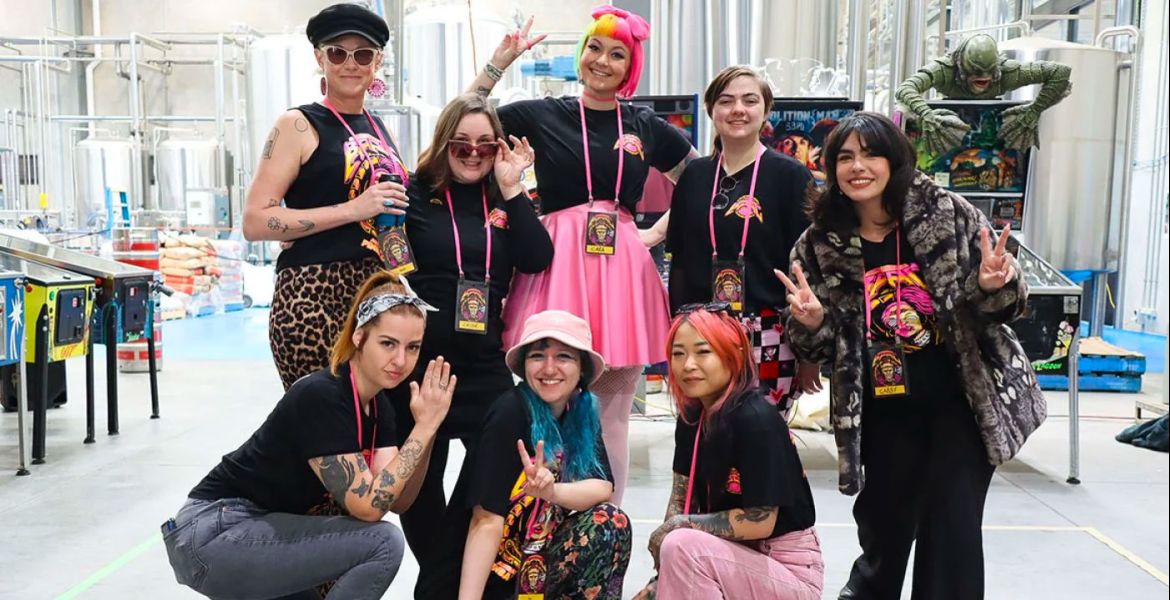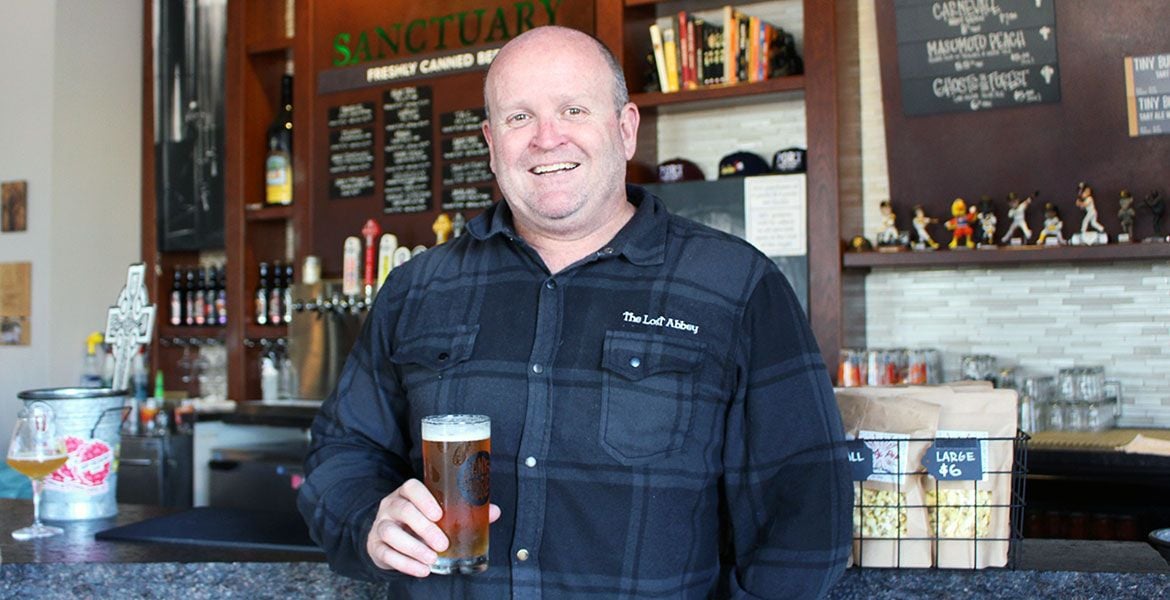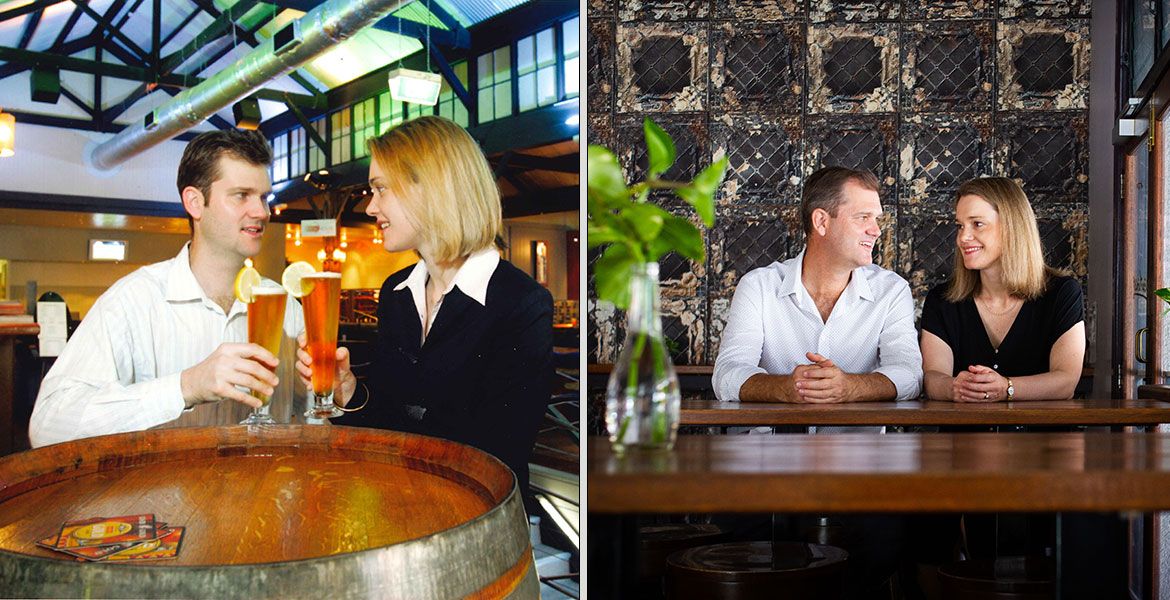To brutally paraphrase HG Wells: no one would have believed in the first years of the 2010s that this country was ready to be filled with quite as many brewpubs as it is today. Sure, five or six years ago you could drink at plenty of breweries but, primarily, they were places of production not pints.
In the late 1980s and 1990s it was brewpubs like Freo's Sail & Anchor, Scharer’s Little Brewery at the King George VI Inn in Picton, the Lord Nelson Brewery Hotel in The Rocks, and the Loaded Dog in Fitzroy that helped kick small scale brewing into life. Yet in the early years of of the 21st century sauntering into a venue to be met by a 600 litre brew kit and a side of buffalo wings was a rare sight.
Not so now.
Stomping Ground will soon have three brewery venues in Melbourne – including one at the airport, Brisbane’s Ballistic operate two brewpubs and a separate West End bar, Batch have two brewery venues in Sydney while Marrickville neighbours Sauce are set to open one in Cairns this year and their siblings within the Founders First family, FogHorn, recently announced they’ll have a second in the Hunter Valley.
Denmark-based Boston Brewery recently opened a satellite venue in the Perth suburb of Vic Park and no sooner had Moon Dog thrown open the doors to their vast tropical lagoon-meets-warehouse that is Moon Dog World to great fanfare than they were scouting the other side of Melbourne for the next location.
It’s not just independent breweries training a greater focus on hospitality as well as brewing, however, with both CUB and Lion’s craft brands entering into joint ventures, picking up more stainless and hiring brewers across the country. In the case of Lion, they’ve been opening and amassing a number of small, venue-based operations too.
Last year, CUB-owned 4 Pines opened more venues, including their first outside New South Wales; at time of writing they have fifteen if you include their breweries plus the stadia and ferry bars. Not long after moving into their imposing Port Adelaide brewery in March 2019 Pirate Life announced plans for a vast brewpub in Perth. Mountain Goat, which will join 4 Pines and Pirate Life under one banner if Asahi's acquisition of CUB goes ahead, will be welcoming Sydneysiders to their Newtown home this winter too.
“It’s the DNA where our brand began: hospitality in Manly,” says 4 Pines co-founder Jaron Mitchell of their rapidly-expanding collection of venues. “We’ve always had more hospitality employees [so it’s] a very, very natural thing to do. We like doing it as well.
“I still reminisce about the days of pulling pints for people coming off the ferry and talking to them about their day – that’s what it’s all about.”
He adds: “You get better at it. Number one is the hardest and two is easier and so on and so forth. It’s about learning as you go but we also employ some of the best in the hospitality industry who’ve done it for life.”
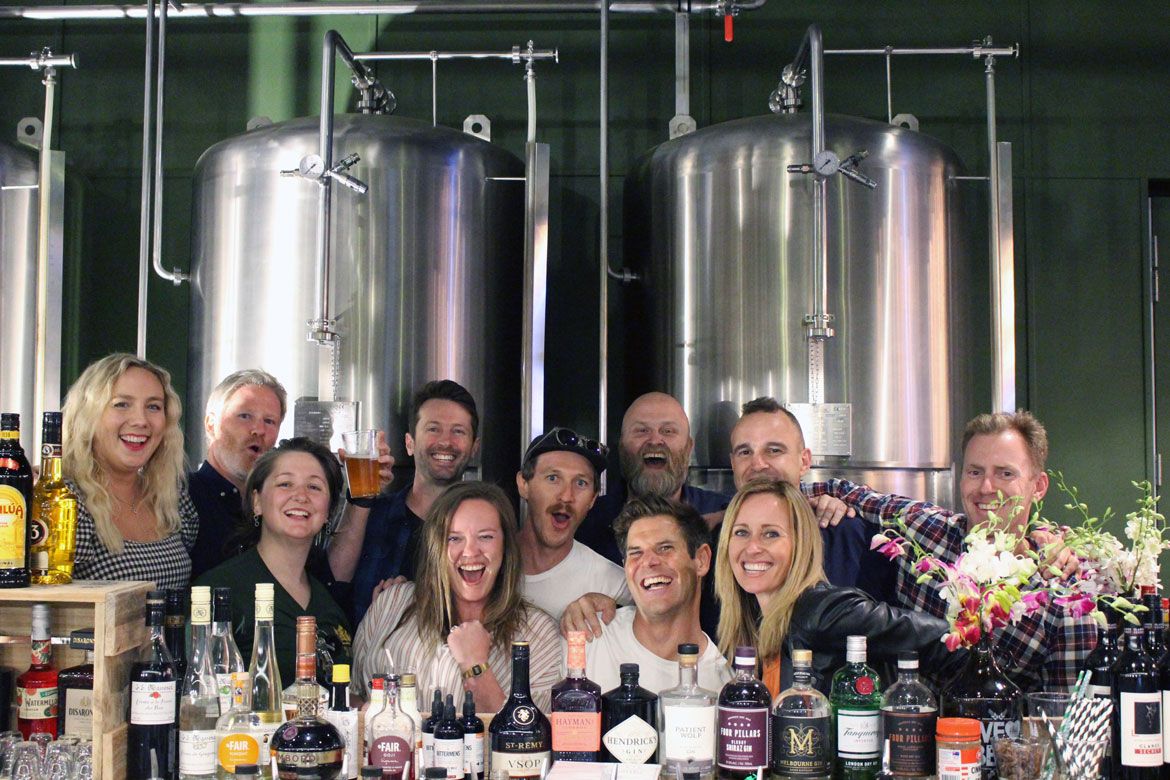
Lion have been playing in the brewpub space since well before 4 Pines poured their first beer, notably through the James Squire Brewhouse chain, and the Kirin subsidiary operates a diverse array of them today: those they’ve launched in-house, others they’ve acquired, and some operating as joint ventures.
“A lot of the brand strategy that you see with Lion is that they’ve been playing with it for ages,” says Chris Sheehan, head brewer at Eumundi Brewery on the Sunshine Coast.
There’s been a James Squire brewpub in Melbourne for more than a decade and that venue – now called The Crafty Squire – is part of a growing list of similarly branded ventures that includes The Squire's Landing, The Daring Squire, The Rogue Squire, The Cheeky Squire, The Charming Squire, The Lucky Squire and The Generous Squire (phew); The Squire’s Maiden, a joint venture in Newcastle, closed in January.
Some have their own breweries but most don’t and they’ve been joined by a list of locally-focused brewpub operations such as Kosciuszko, Bevy in Perth, Byron Bay Brewery, Eumundi, and Tiny Mountain, which opened in November 2019 in Townsville.
All of them – along with beers from the likes of New Zealand’s Panhead and America’s Brooklyn Brewery – sit under the broader Malt Shovel banner, launched in 2017 as a home for Lion’s craft range.
As well as brewing at Eumundi, Chris is responsible for much of the beer coming out of Lion’s smaller breweries, helping set up new operations and working closely with the head brewers. Previously Chris was head brewer at the Malt Shovel brewery in Camperdown and worked closely with brewmaster Chuck Hahn, whose work with the James Squire venues Chris says helped inform those that have followed.
“Chuck drew a lot of inspiration from Karl Strauss and in my view it’s really interesting to see how long it’s taken on for that to cotton on here.”
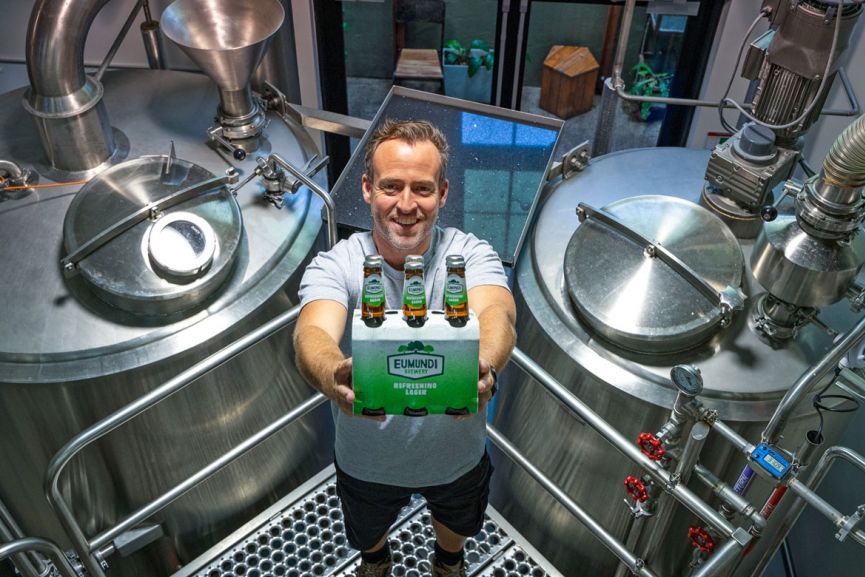
While having smaller, customer-facing breweries presents clear advantages in terms of connecting with drinkers directly, Chris says it’s also been key to Lion’s ability to create brands in house. Furphy was originally designed as a hyperlocal beer to celebrate the launch of Little Creatures in Geelong. But it’s Kosciuszko Brewery in Jindabyne that he points to as setting the benchmark as to what small breweries built into larger networks can achieve.
“That little brand Kozzie just seemed to grow organically and, from the big company’s perspective, it had very little investment and not much was put into it,” Chris says. “Lion kind of likes to build its own and that’s where this next wave of little breweries and brands tied to their points of origin is part of their strategy.
“Lion has bought stuff and it particularly is [buying] overseas and those are new places for it to do business. But in Australia, kind of off the back of Kozzie and Furphy, they prefer to have a crack at developing their own.”
Citing the examples of Tiny Mountain, Eumundi and Bevy, which is found within the huge Camfield pub next to Perth Stadium, he adds: “They are operating breweries and brewers in those locations and Lion could use those trademarks as they like but they do say, ‘If we are going to do this properly then we’ll build a brewery.’.”
The process of building brands locally and creating a story around them for locals to embrace only to send a beer to be brewed with Lion’s network of larger breweries and distribution channels isn’t free of controversy.
It’s a growth path that can lead to a charge of “craft-washing” or accusations that a multinational is attempting to look like a minor player. Chris says that when it comes to breweries like Eumundi, they genuinely are small and the parent company is upfront about what they own and how they scale successful brands.
“I live locally and I make my beer locally and use local ingredients,” he says. “It’s certainly not a secret that when we get to a certain size or a scale then we can use the greater network.”
As for why operating venues has become a drive for larger breweries, Chris points to how much the beer market has segmented and how lifelong loyalty to brands Australians once held has faded.
“The market is fragmenting, it’s in lots of little parts rather than big parts,” he says, offering a reminder of how quickly popular brewery brands can disappear.
“I [worked] at Knappstein in South Australia in its heyday and that’s now gone. That didn’t see ten years and in its first six years we couldn’t make enough beer out of it – it was flat out.
“We didn’t scale it properly or look after it, invest in it or expand it properly. I tell that to my [brewers]. The jury is out on whether or not these things will be huge successes but all of them are in growth; slow and steady growth which is a good thing.”
When it comes to breweries running venues, it’s unlikely anyone’s been more successful on a global scale than BrewDog. Along with breweries in the UK, America, Germany and now Australia, the Scottish operation has close to 100 venues worldwide. BrewDog co-founder Martin Dickie was in the country in November last year for the launch of the Australian brewery and signalled that the Scottish brewery would be looking for sites for more bars.
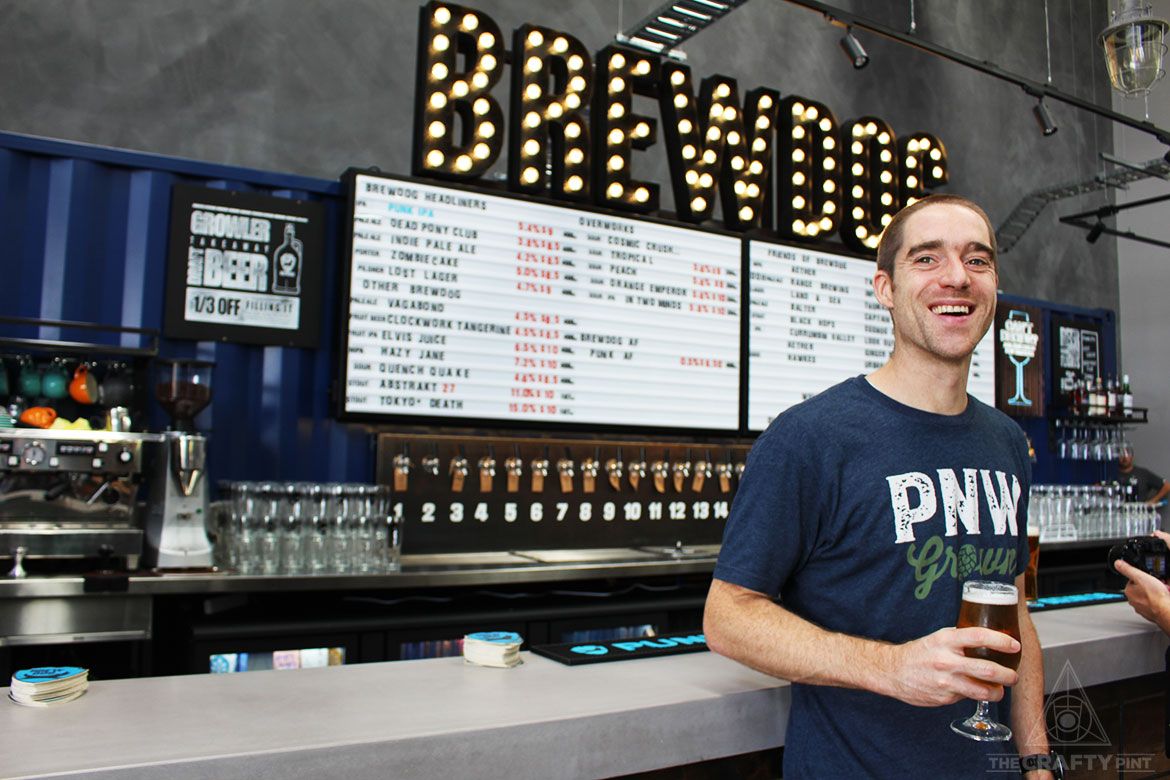
Martin says the origin of their focus on venues stems from the early days after opening the first BrewDog bar in Aberdeen in 2010, three years after launching their debut beers.
“Selling beer in Aberdeen was really hard for us; coming out with a six percent IPA or ten percent stout just wasn’t what a pub or a restaurant around us were used to,” he says. “The main thing for us was having the staff that were fully engaged and to take people on a journey.”
Their growth from one brewery to one hundred outlets over a decade shows how much being a hospitality provider has been part of BrewDog’s growth and, like Jaron, Martin says they get better at running venues as they keep opening them. And, though Martin wouldn’t give a figure on how many BrewDog bars he’d like to see in Australia, the company has indicated the Brisbane DogTap won’t be left alone.
“They just work so well in terms of bringing people in to understand our beers, so it’s just completely proliferated,” Martin says.
“We look at [bars] as a retail store but it could quite easily sit under the marketing side of the business as well. It is a fantastic spotlight on what we do, the beers we make and how we like to educate people about how awesome craft beer is.”
Martin says larger breweries have been able to move towards brewpubs because of the craft brands they’ve acquired over the years, with customer-focused homes becoming more important in the world of craft beer.
“I think it’s about trying to keep that relevance in the market,” he says.
“If you’re selling 30 million hectolitres of beer a year then to focus on a couple of individual bars doesn’t really make much sense. But then if your portfolio has some of these craft brands then you need to have these focal points where people can go and understand [them].”
The move to breweries operating multiple venues can create its own problems by turning brewing companies into direct competition with the bars and pubs with whom they’ve traditionally enjoyed a supplier-customer relationship. If everyone wants to drink at the brewery, why should the bar next door stock your beer?
Martin says opening new venues hasn’t seen their tap numbers in nearby pubs or bars nearby diminish; instead, he believes opening bars in new areas can create more craft beer fans.
“I think it works really well and I don’t think it’s direct competition,” he says.
“We’ve seen a positive cycle; if we get a bar in an area then sales of our beer in the area goes up instead of goes down.”
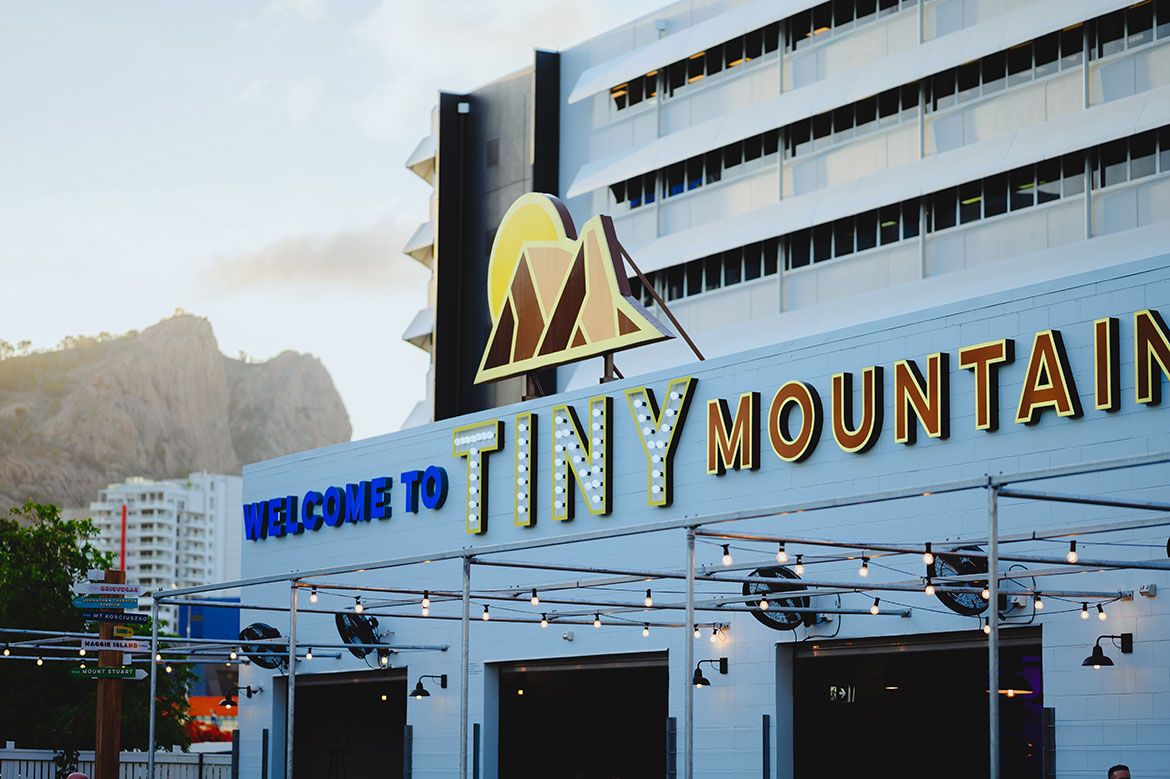
While they remain a long way from reaching their century of brewpubs and venues, 4 Pines’ network now reaches from the Northern Beaches north via Newcastle to Coolangatta and Brisbane and southeast via Brunswick to Torquay (pictured at the top of the article), with bars at the SCG and Melbourne’s Marvel Stadium also part of the picture. Such expansion – often in partnership with other operators – has meant a change in mindset.
“It was very Northern Beaches focused at the start and that was intentional as we could jump in a car and touch all of [our venues] in 45 minutes,” Jaron says. “Now we’re having a crack at places that make a lot of sense for us.”
He says the aim is for customers to have “a 4 Pines experience; they’re all under our wheelhouse, not just set and forget”. Certainly, walk up the stairs above Boardriders in Torquay and you’ll be instantly reminded of the original Manly brewpub, even if there’s no brewery onsite and just half a dozen taps of core and seasonal beers.
Irrespective of the ownership structure at each venue, Jaron says: “We have to make sure that all of those guys with the shirt on are 4 Pines guys.”
In the case of their major partnerships, such as that with the group behind Welcome to Thornbury and now Welcome to Brunswick where they’ve set up a 4 Pines brewery, that’s meant “hundreds of conversations over 18 months to two years where if it had gone wrong we would have walked away.”
At the same time, he says, “if you get to the point where you can let go there’s so much that can be done … it’s a case of sifting through the opportunities and picking the right ones – then doing them right.”
And you can expect the opportunities – and future 4 Pines brewpubs and venues – to keep coming.
“People love hanging out in their little local hangouts where it’s walking distance,” Jaron says when asked where the ceiling lies. “The sponge is absolutely still not saturated.”
Certainly, with more breweries big and small putting a greater emphasis on hospitality and opening multiple venues there will be plenty of other business owners hoping he’s right.
As for the serious manner in which the multinationals are approaching this space, Chris says: “I think it’s just going to add more layers to the industry, so I think it’s a good thing.
“As always, the jury is still out on all this, but everyone has their cards on the table and is showing how they’re playing it.”
Will Ziebell was a guest of BrewDog for their Brisbane launch.



